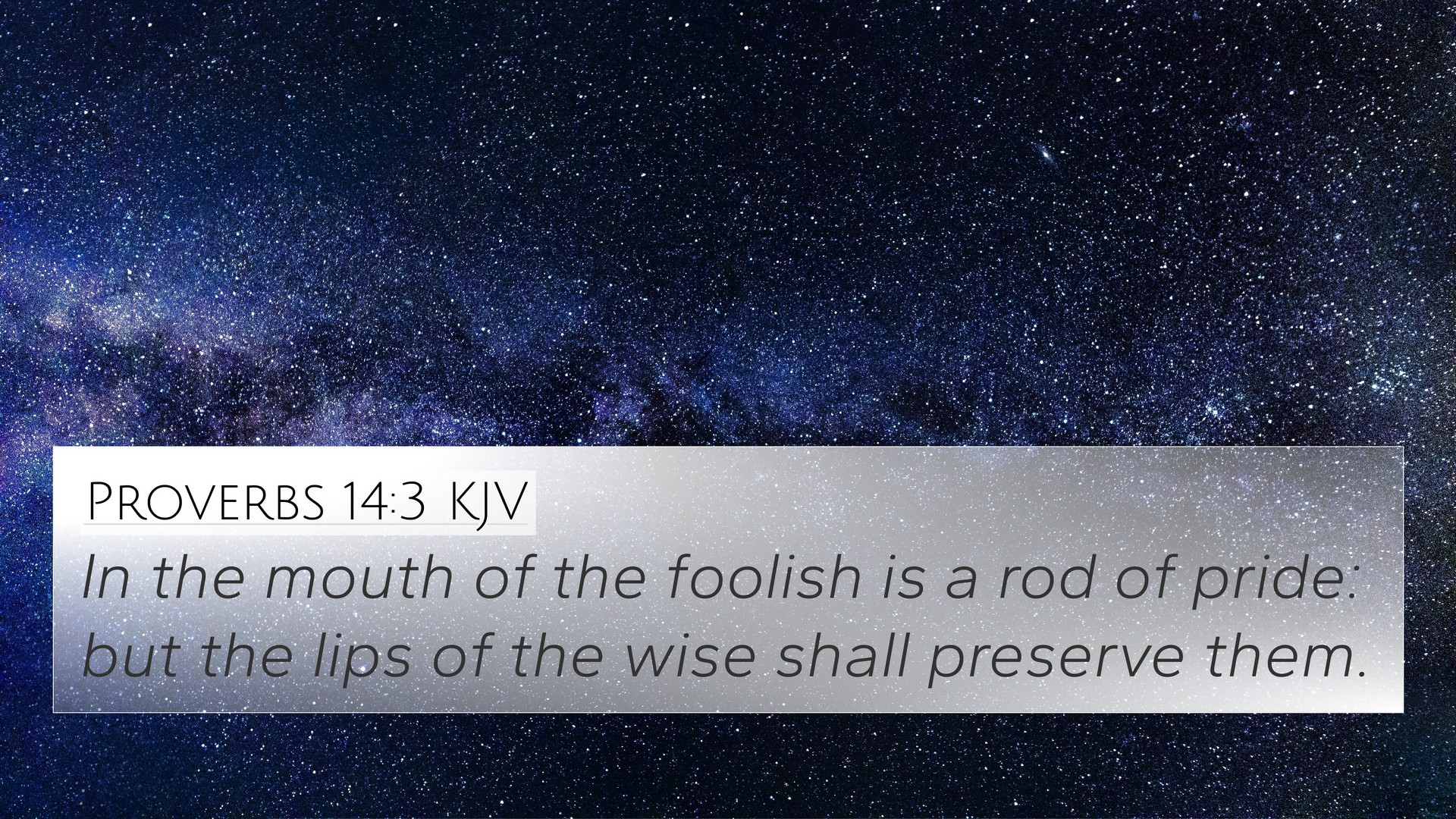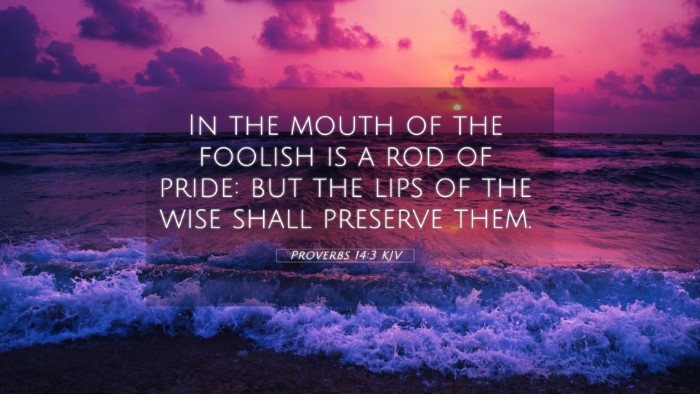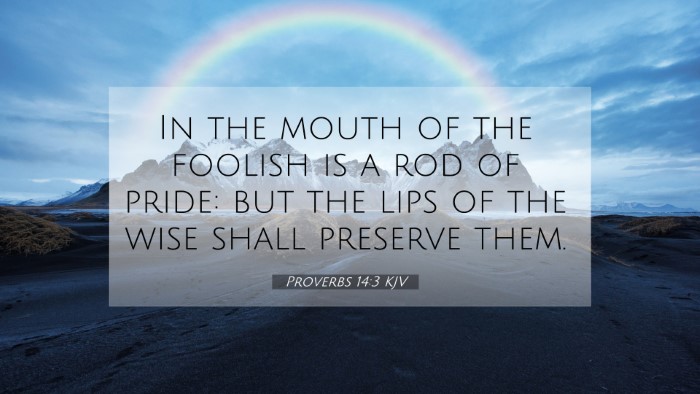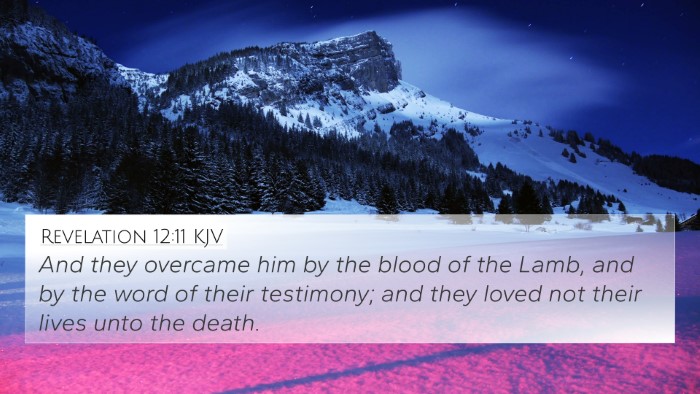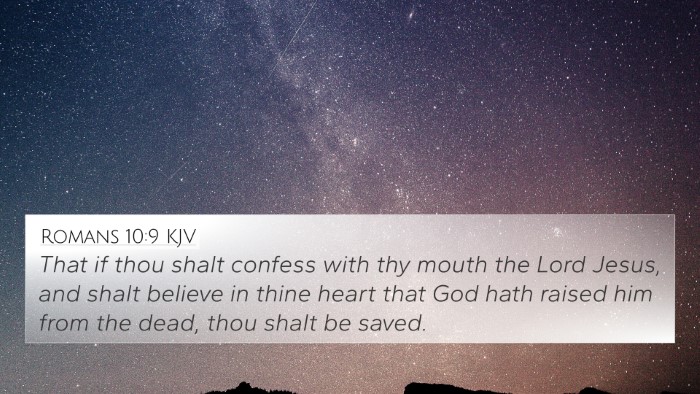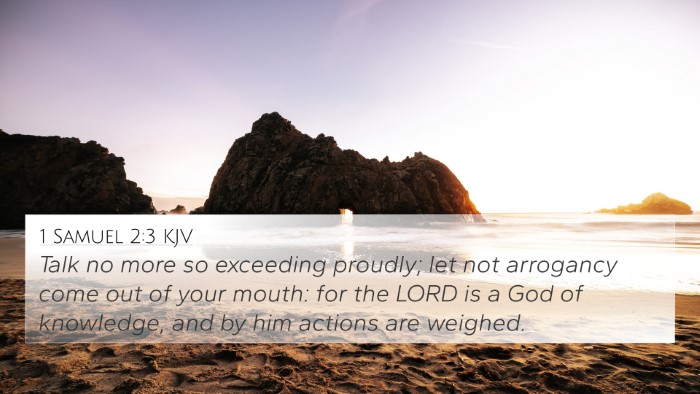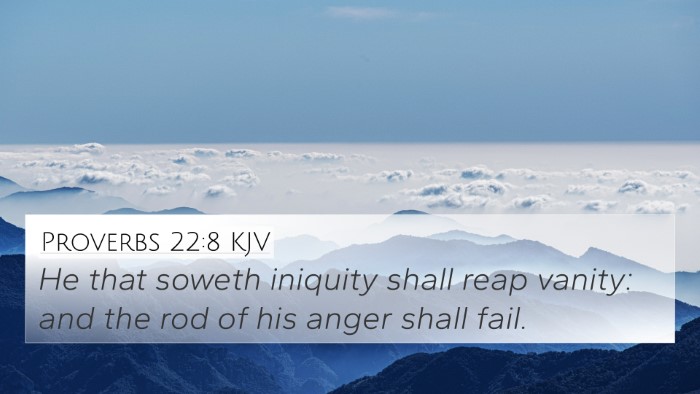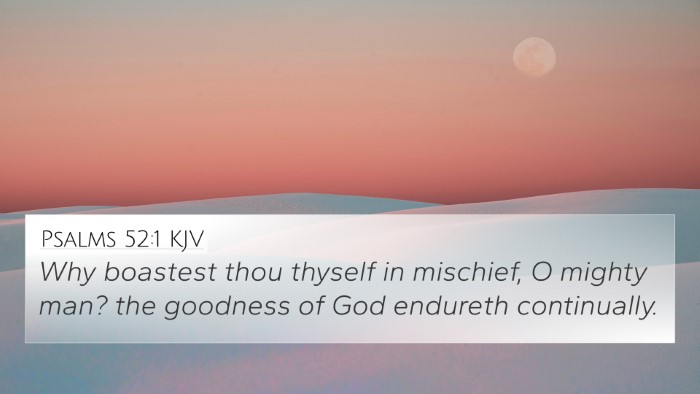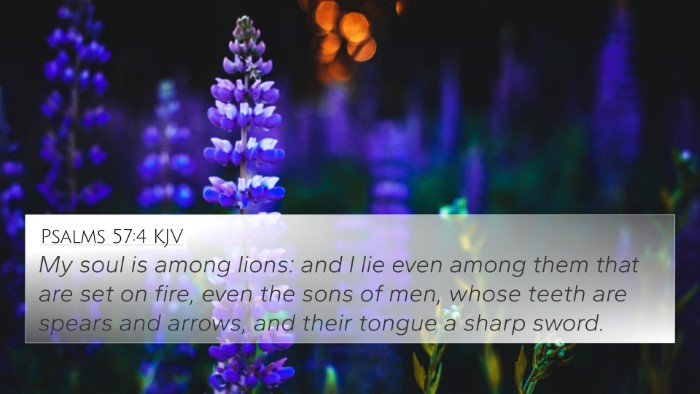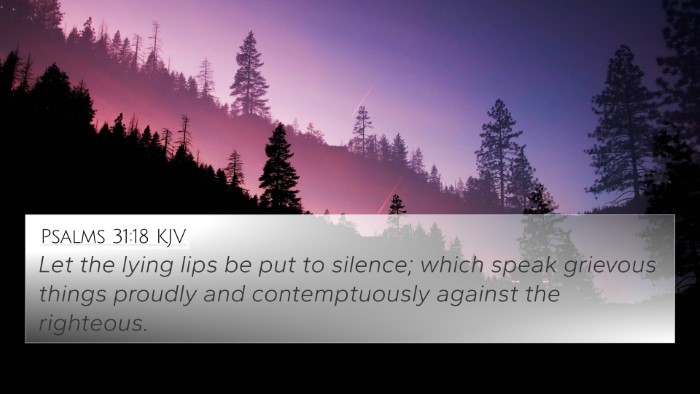Understanding Proverbs 14:3
Proverbs 14:3 states, "In the mouth of the foolish is a rod of pride: but the lips of the wise shall preserve them." This verse serves as a poignant reflection on the dichotomy between the behavior and speech of the foolish and the wise. The initial part focuses on the pride found in the discourse of the foolish, while the latter part emphasizes the preserving quality of the wise's communication.
Commentary Insights
Based on insights from Matthew Henry, Albert Barnes, and Adam Clarke, we can distill several key interpretations of this verse:
- Matthew Henry: Henry highlights that foolish pride often leads individuals to speak boisterously and arrogantly. This pride manifests in negative consequences, providing a “rod” that symbolizes the punishment that often follows such misguided arrogance. Conversely, the wise use their words to bolster and protect rather than to harm, illustrating the power of thoughtful and measured speech.
- Albert Barnes: Barnes posits that the "mouth of the foolish" indicates not just a lack of wisdom, but also how their pride can serve as a source of strife and conflict. His analysis suggests that the preservation mentioned pertains to the wise being enabled to navigate life’s challenges thanks to their sagacious communication. Words, thus, become both a weapon for destruction in the hands of fools and a means of safeguarding oneself in the hands of the wise.
- Adam Clarke: Clarke elaborates on the concept of "foolishness" and implies that those who are foolish are often unaware of their need for humility. Their pride blinds them to reality, leading to destruction. In contrast, the wise possess a keen understanding of their circumstances, allowing their speech to offer protection and encouragement, thus preserving their integrity and well-being.
Bible Verse Cross-References
This verse can be connected to several other scriptures that enhance its meaning and offer a broader understanding of the themes of wisdom, folly, and speech in the Bible:
- Proverbs 12:18: "There is that speaketh like the piercings of a sword: but the tongue of the wise is health."
- Proverbs 18:21: "Death and life are in the power of the tongue: and they that love it shall eat the fruit thereof."
- James 3:5-6: "Even so the tongue is a little member, and boasteth great things. Behold, how great a matter a little fire kindleth!"
- Proverbs 15:1: "A soft answer turneth away wrath: but grievous words stir up anger."
- Matthew 12:36-37: "But I say unto you, That every idle word that men shall speak, they shall give account thereof in the day of judgment."
- Proverbs 10:19: "In the multitude of words there wanteth not sin: but he that refraineth his lips is wise."
- Ecclesiastes 10:12: "The words of a wise man's mouth are gracious; but the lips of a fool will swallow up himself."
Thematic Bible Verse Connections
In exploring thematic connections, readers might find parallels in passages that address the weight of our words and the consequences of speech:
- Active engagement with Proverbs 13:3 teaches the importance of guarding one's mouth as it influences the preservation of life.
- The idea of humility and wisdom also resonates with Proverbs 11:2, where pride leads to disgrace, but humility brings wisdom.
- Colossians 4:6 encourages us to let our speech be always with grace, reflecting the essence of Proverbs 14:3.
Conclusion
Proverbs 14:3 encapsulates the profound implications of speech and the virtues of wisdom over folly. The aligning themes in the referenced verses highlight a biblical narrative centered on the significance of words, encouraging believers to cultivate wisdom and be cautious in their speech. As we engage in comparative Bible verse analysis and delve into cross-referencing biblical texts, we uncover a tapestry of connections that not only enhance our understanding of each verse but also encourage a deeper reflection on our own speech and actions.
